- Doctors & Departments
-
Conditions & Advice
- Overview
- Conditions and Symptoms
- Symptom Checker
- Parent Resources
- The Connection Journey
- Calm A Crying Baby
- Sports Articles
- Dosage Tables
- Baby Guide
-
Your Visit
- Overview
- Prepare for Your Visit
- Your Overnight Stay
- Send a Cheer Card
- Family and Patient Resources
- Patient Cost Estimate
- Insurance and Financial Resources
- Online Bill Pay
- Medical Records
- Policies and Procedures
- We Ask Because We Care
Click to find the locations nearest youFind locations by region
See all locations -
Community
- Overview
- Addressing the Youth Mental Health Crisis
- Calendar of Events
- Child Health Advocacy
- Community Health
- Community Partners
- Corporate Relations
- Global Health
- Patient Advocacy
- Patient Stories
- Pediatric Affiliations
- Support Children’s Colorado
- Specialty Outreach Clinics
Your Support Matters
Upcoming Events
Colorado Hospitals Substance Exposed Newborn Quality Improvement Collaborative CHoSEN Conference (Hybrid)
Monday, April 29, 2024The CHoSEN Collaborative is an effort to increase consistency in...
-
Research & Innovation
- Overview
- Pediatric Clinical Trials
- Q: Pediatric Health Advances
- Discoveries and Milestones
- Training and Internships
- Academic Affiliation
- Investigator Resources
- Funding Opportunities
- Center For Innovation
- Support Our Research
- Research Areas

It starts with a Q:
For the latest cutting-edge research, innovative collaborations and remarkable discoveries in child health, read stories from across all our areas of study in Q: Advances and Answers in Pediatric Health.


Transforming Community Health

Child Health Advocacy Institute (CHAI)
Advocating for kids – in and out of the hospital ™
Children's Hospital Colorado partners with the community to advocate for the health and safety of kids. Our work goes beyond our hospital walls and into the communities we support. We're proud to lead the effort to bring solutions to some of our community's most pressing pediatric health issues.
To reinforce our ongoing commitment to community health improvement, Children's Colorado established the Child Health Advocacy Institute (CHAI). CHAI's mission is to positively impact the health and safety of children by working collaboratively with the public and our community partners. By bringing people together and leading the way in child health and safety, CHAI builds and operates evidence-based programs aimed at creating a thriving community for all children.
Supporting community health needs for children
Imagine a child who is referred to the Lifestyle Medicine Program of Children's Colorado for obesity management. Not only does this child's obesity impact their physical health and well-being, it likely impacts other health areas, like their susceptibility to injury, asthma and oral health issues.
Before looking to immediately address the issue of obesity, which also trickles into these other health conditions, we must first recognize the comprehensive nature of a child's care, including social determinants of health.
Social determinants of child health
Several factors likely contribute to a child's struggle with obesity.
For example, does the child live in a neighborhood where it isn't safe to play outside? Does their family have access or financial means to purchase healthy foods? Do they come from a culture where managing obesity isn't a priority? Does their school have physical education classes as part of the curriculum?
When we get to the core of what's causing health problems, it typically involves many layers of influence. In fact, only 20% of health depends on clinical care; the other 80% depends on social determinants, according to the University of Wisconsin Population Health Institute. Specifically:
- 40% relates to social and economic factors such as education, culture, employment, income, community safety, family and social support
- 30% relates to health behaviors like tobacco use, diet, exercise and alcohol use
- 10% relates to the physical environment or environmental quality
Many children experience overlapping social determinants of health, such as low income, lack of transportation and poor access to safe places and role models, which consequently affects their health and well-being.
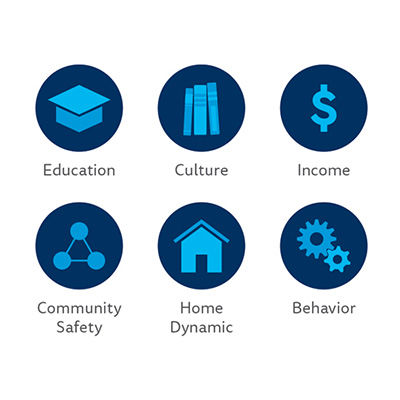
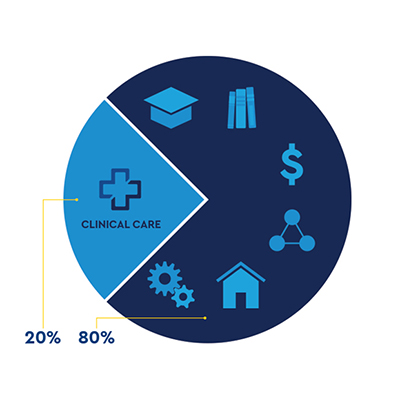
The population health approach for kids
The future of healthcare depends on how we address and support the whole picture of a child's health and begin to change both the way we deliver healthcare and the way our population accesses healthcare. Every population and every community has a different set of healthcare needs, and delivering care isn't a one-size-fits-all model.
We call this model population health, where we implement creative and alternative methods to ensure access to care for the entire population — in our case, children. The population health approach is not only about access to medical care, but also supporting health and wellness in the home, communities and schools. It's about delivering healthcare that lasts beyond a visit to the doctor or a check-in at the clinic.
At Children's Colorado, one of our goals is to create healthier communities through the population health approach. We invest resources into keeping kids out of our hospital through preventative programs and partnerships, and by addressing all aspects of their care.
Why community health partnerships are critical for kids
By partnering with primary care providers, schools and community-based organizations who have similar goals to improve child health, we can work together to reduce illness and improve the health and well-being of children in our community.
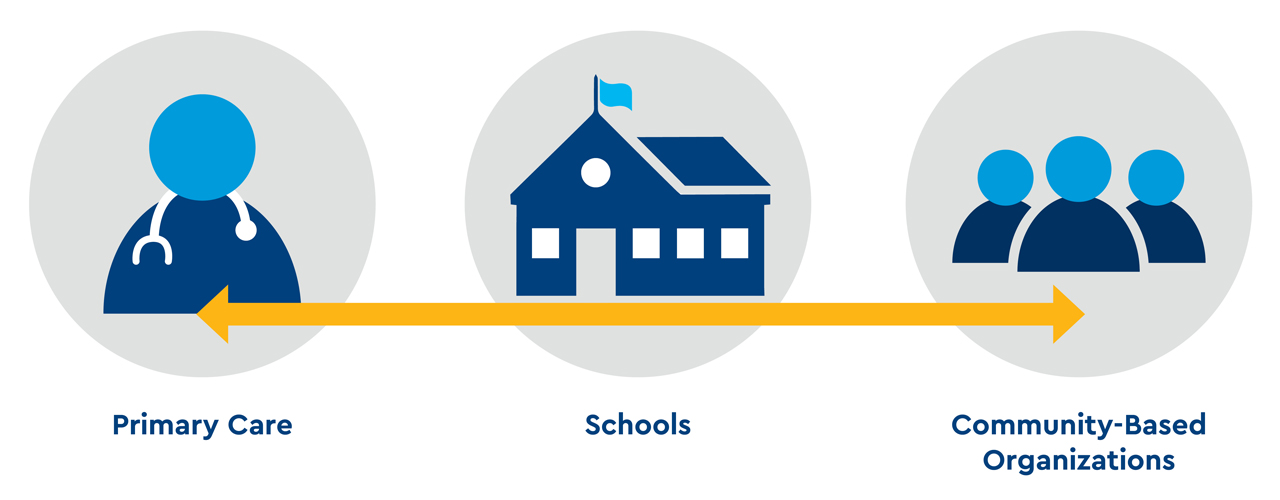
To learn more about how we're partnering with our community, email CHAI@childrenscolorado.org.
Our community health priorities
Children's Colorado conducts regular assessments to better understand the current state of children's health. Based on ongoing conversations with our community, we've identified mental health as the top priority to focus our work.
Learn how we work with our local community to identify and prioritize children's most pressing health needs through our Community Health Needs Assessment.
Add your voice
We host events and opportunities for community members to share feedback and perspectives on child health needs in our communities. Please return to this web page to learn about upcoming events. Or, speak up for kids by contacting your leaders and lawmakers through our Child Health Champions Action Center.
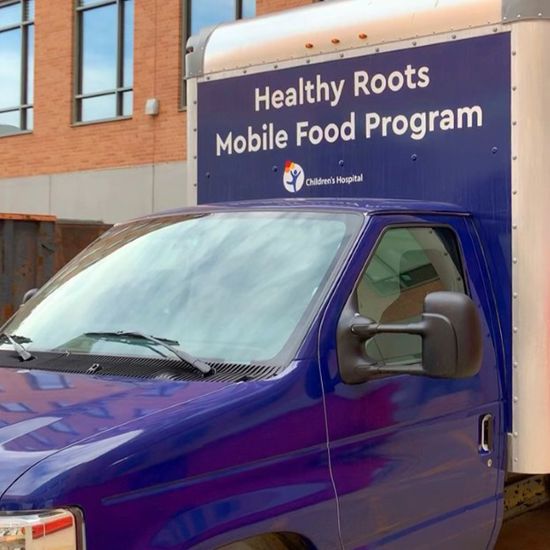
Connecting our community with the resources they need
Patients, families and community members can more easily navigate the complex system of social services in their area by using our tool, Resource Hub.
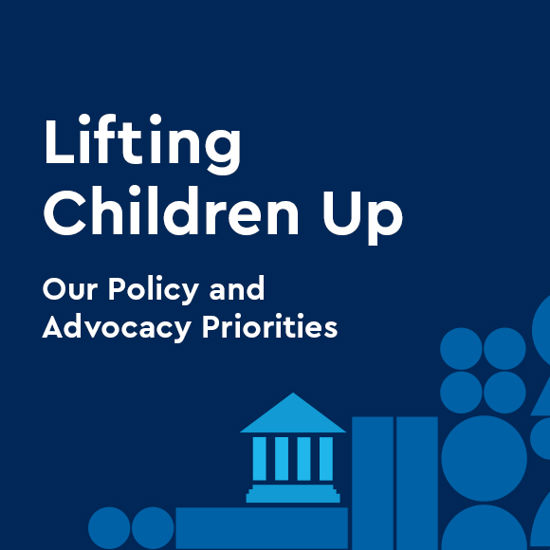
Healthier kids through public policy
Public policy decisions can dramatically shape the health of children, for better or worse. That’s why we speak up on their behalf – year after year.



 720-777-0123
720-777-0123




